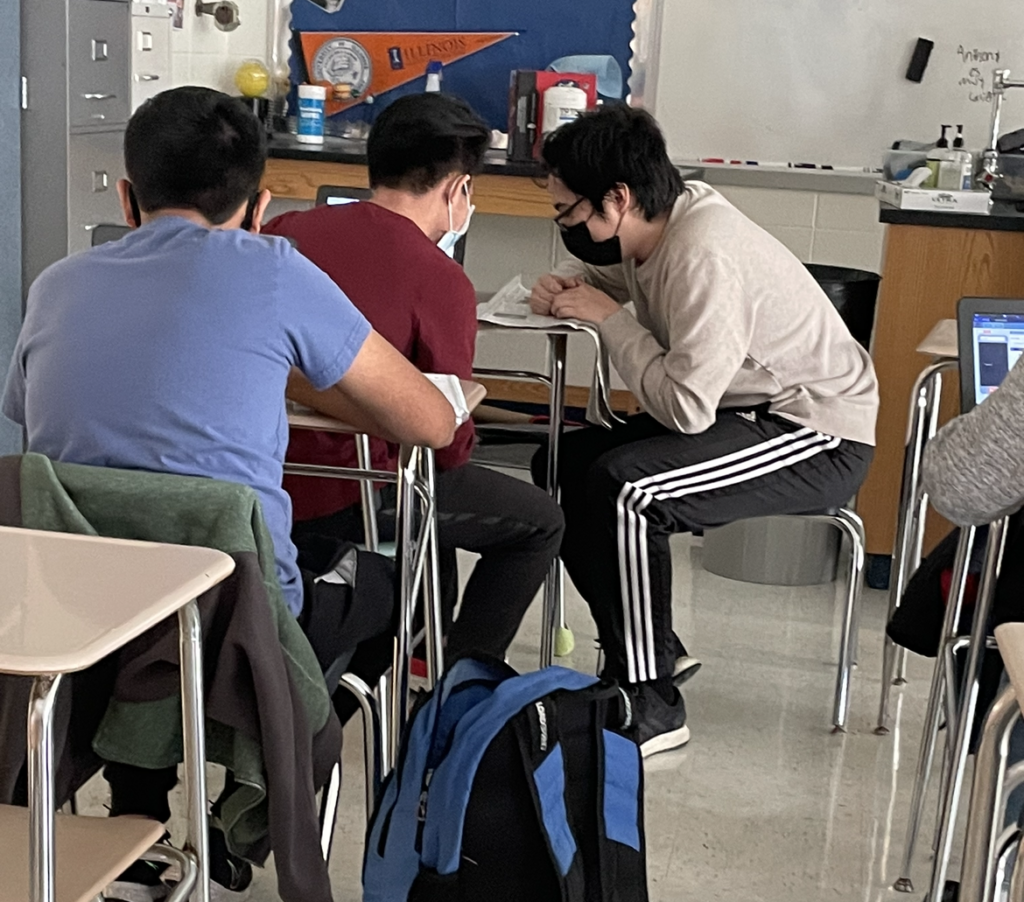The completion and submission of late are missing homework assignments has been plaguing both teachers and students at AT in the year following a disjointed homework year of remote learning.
What previously had been a more rigid policy on late work from most teachers has turned much more lenient this year due to a number of factors, including extended student absences due to Covid-19 exposures and infections and a lack of student time management and organizational skills after the loss of a critical year of real high school.
One teacher who has noticed a change in late work this year, Anna Lpuise McSweeney, said that although the quantity may not always be different, the extensions for students have been significantly heightened.
“I don’t know that I see much of a difference in the number of students turning in work late today compared with the years prior to Covid,” she said. “One difference I’ve noticed is teachers building in more time for remediation since Covid.”
This remediation is in part a result of many students missing weeks with illness. The AT student handbook states that “A student is allowed three days for each day of absence of makeup work.” However, with an extended quarantine period for those who caught covid, many students were left able to hand in work weeks after it was due. Some teachers even allowed work from the beginning of the semester to be handed in at the end to raise grades before finals in an effort to be understanding of students in such a difficult year.
In addition to teachers’ observance of changes in late work this year, students have found changes in their own habits. Increased levels of stress and disorganization have contributed to work being handed in late, as well as the hiatus in normal homework activities during covid.
“I noticed myself turning in more late work than usual,” said junior Lindsey Pham, who is an AP student. “I have always been a great student for the last two years, but now I’ve been struggling to get work in. It just feels a lot more stressful.”
Pham said that she believes leniency is extremely important in a year where many students like her can’t elude struggling.
“I believe that there should be more leniency with late work because some teachers will give you a zero and leave it to stay there. Shouldn’t it be better to allow students to still try to participate by turning in late work?” she said.
McSweeney said she is a teacher who has become looser in her late work policy this year.
“I am much more lenient than ever,” she said. I accept almost anything late and while I do take off points, I don’t take off as many as I used to. I think that if a student can show me they have mastered a certain set of skills, like completed speech, essay, outline, etc, I’m not sure it’s fair to penalize heavily for lateness. It’s a struggle to find the balance between grading skills versus behaviors.”
Despite the effort to be lenient that teachers like McSweeney are making, there are also ramifications that come with the acceptance of late work. Teachers are often left with stacks of papers that need to be graded. A push to put grades in powerschool has forced teachers to put in zeroes until missing work is turned in, only to go back and change each individual grade again. Teachers have been unable to find a system that functions well with their inability to grade an entire class’s assignment at once.
Principal Jack Andrews said that a committee is working on creating a more universal late work policy that is less individual on a teacher to teacher basis in order to help out educators and students alike.
“We have started to look at whether we have a grading policy and we’re discussing exactly those things [late work policies] because right now, it is very teacher based,” he said. “So if someone is in English 9 with one teacher and someone else is in English 9 with another teacher, they should have a similar policy inside of the same class but with different teachers. Sometimes that’s not always the case, and it’s something that we’re definitely working on to make sure of that.” he added.
Andrews also mentioned that while the team is trying to create a more ubiquitous policy, it recognizes that it needs to, to an extent, work with some gray space because each student and teacher has different needs.
“Policies are good and standards are good, but the balck and white just doesn’t work that way for everybody, so we just don’t want to implement something too black and white,” he said.
McSweeney, who is on this new district wide committee that evaluates grading policies, said that the most important thing is to gain empathy for the students’ perspectives and the reading for their actions.
“I do think we could benefit from consistency, and more importantly, I think we need to work to find out why kids are turning in assignments late,” she said.
As students and staff alike continue to navigate through this period of what oftentimes seems like unfathomable stress, late work will remain an ongoing point of discussion heading into the next school year, as both groups look for a new start.
As this semester wraps up and there is a rush to get in everything that is missing as well as the new assignments that come, students like Pham are urging teachers to be understanding for just a bit longer.
“With junior year, it has already been stressful,” said Pham. “My workload has especially piled up. Coming out of covid, especially after being in remote for so long, has felt extremely difficult. Classes have felt harder to take and nights have become longer. The transition wasn’t very easy for a lot of people, including myself. I believe they [teachers] do need to be understanding because this year has been hard on everyone,” said Pham.


